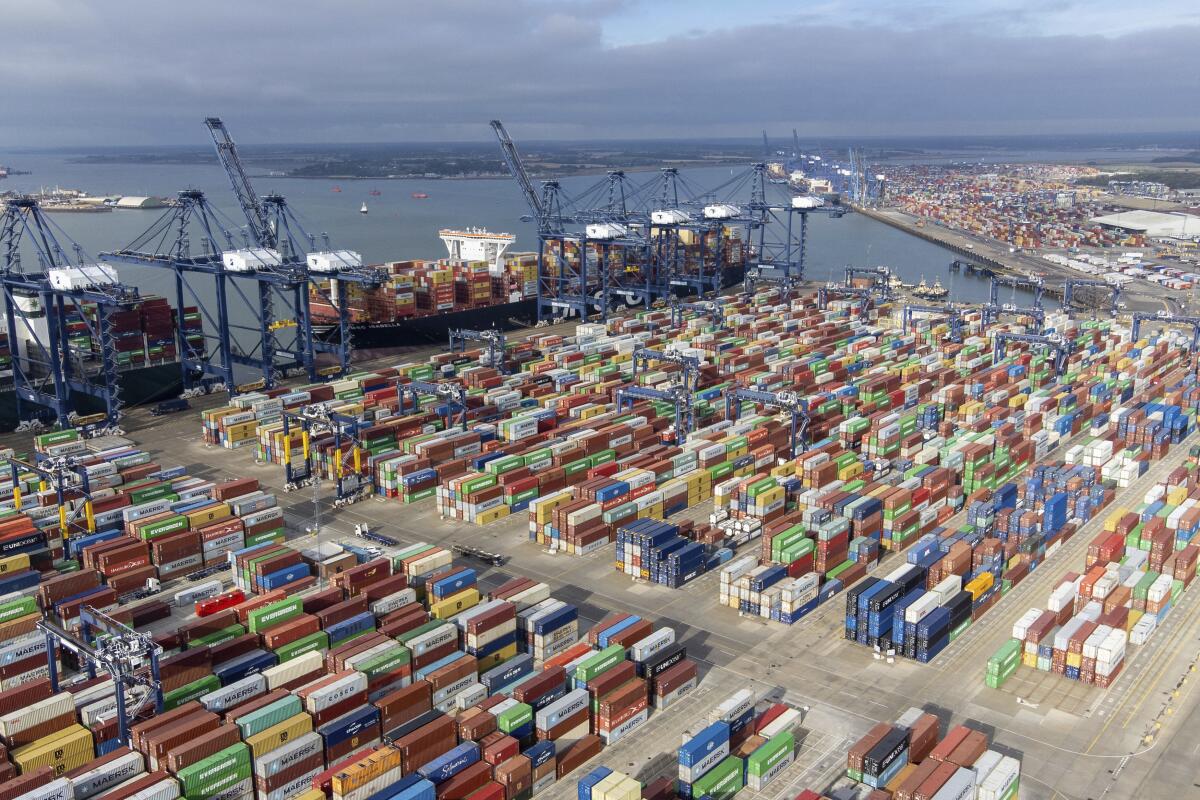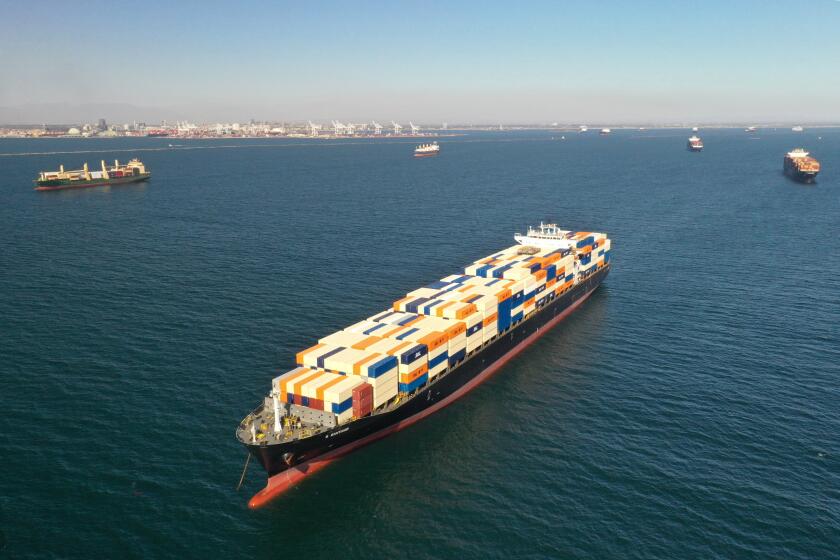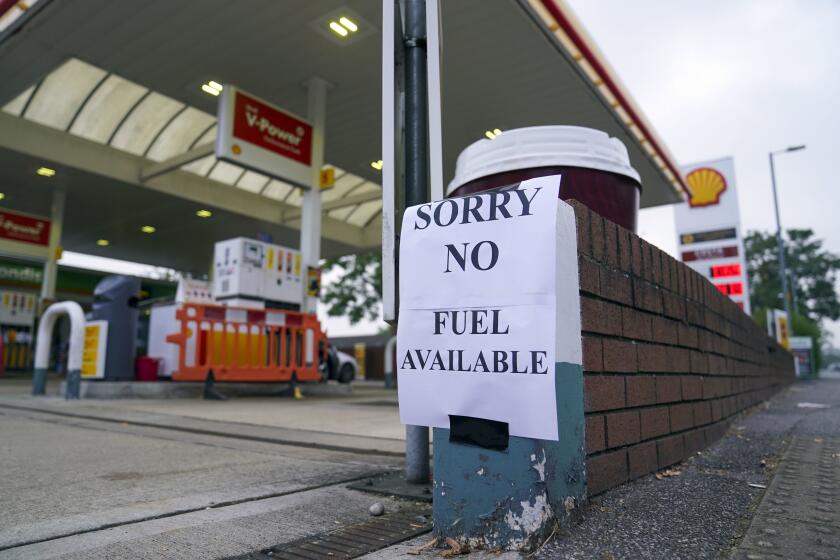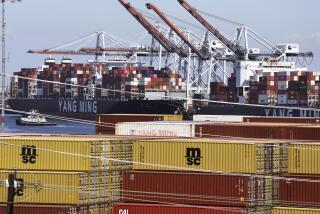Logjam at Britain’s busiest port adds to fears of Christmastime shortages

LONDON — A logjam at Britain’s busiest commercial port ratcheted up concerns Wednesday that the country could see an array of shortages during the crucial Christmas shopping period, including of toys and food.
Worries have mounted over recent weeks that the U.K.’s economic recovery is being hobbled by widespread shortages, which have been most clearly seen in long lines at gas stations and some empty shelves in supermarkets.
At the commercial port of Felixstowe in eastern England — Britain’s largest, with 36% of the country’s freight-container volume — a huge pileup of containers has been blamed on a shortage of drivers and prompted shipping company Maersk to divert some of its biggest vessels.
Peter Wilson, managing director at Cory Brothers shipping agency, said the British economy has a “significant pinch point” when it comes to truck drivers and the demand for moving goods from ports.
“That’s a really significant issue for us here in the U.K.,” he told BBC radio.
Asked whether it would affect Christmas trade, he said it had the “potential” to do so but stressed that the supply chain “will not fail in the U.K.”
Many items destined for retailer shelves this holiday season are hopelessly snarled in the global supply chain. What does that mean for shoppers?
However, he said there was potential that some items, including toys and food, may not be available nearer to Christmas.
While other countries around the world have also suffered significant delays, Britain is facing particularly acute problems at the moment, with the number of truck drivers way down. The causes are widespread, but it’s clear that the combination of the pandemic and Britain’s departure from the European Union prompted many migrant workers from EU countries to leave the U.K. and head home.
Andrew Opie, director of food and sustainability at the British Retail Consortium, said the congestion at Felixstowe is “yet another unwanted side effect” of the driver shortage and that “further disruption may be unavoidable.”
The British government has sought to dampen fears of a shortage of many goods at Christmas and says it is accelerating efforts to train more truck drivers. It is also offering thousands of short-term visas to foreign drivers, though few appear to have taken up the offer.
A global supply chain breakdown has resulted in gridlock at the ports of Los Angeles and Long Beach and beyond.
The shortages are coming at a time when Britain’s economic recovery is already losing momentum despite the widespread lifting of coronavirus restrictions.
While the Office of National Statistics said the economy managed some modest growth in August as bars, restaurants and festivals benefited from the first full month without coronavirus restrictions in England, the 0.4% increase was slightly lower than expected. The agency also revised down July’s figure from 0.1% growth to a 0.1% decline as a result of weaker data from a number of industries, highlighting the choppy nature of the economic recovery.
Earlier this year, there had been expectations that the British economy would recover all its COVID-19-related losses by the end of the year, but that now remains open to question following the recent loss of momentum and the mounting supply-chain issues. As of the end of August, the British economy remained 0.8% smaller than its pre-pandemic level in February 2020.
A supply disruption owing to a shortage of truck drivers has caused thousands of British gas stations to run dry as motorists scramble to fill up.
Also set to weigh on growth in the coming months are rising inflation, low productivity levels, higher taxes and an uncertain COVID-19 backdrop heading into winter.
The International Monetary Fund forecast Tuesday that Britain would grow by 6.8% this year, more than any other Group of Seven industrial nation, and by a still-high 5% next year. However, the British economy experienced the worst recession out of all G-7 members in 2020, contracting by 9.8%.
More to Read
Sign up for Essential California
The most important California stories and recommendations in your inbox every morning.
You may occasionally receive promotional content from the Los Angeles Times.













